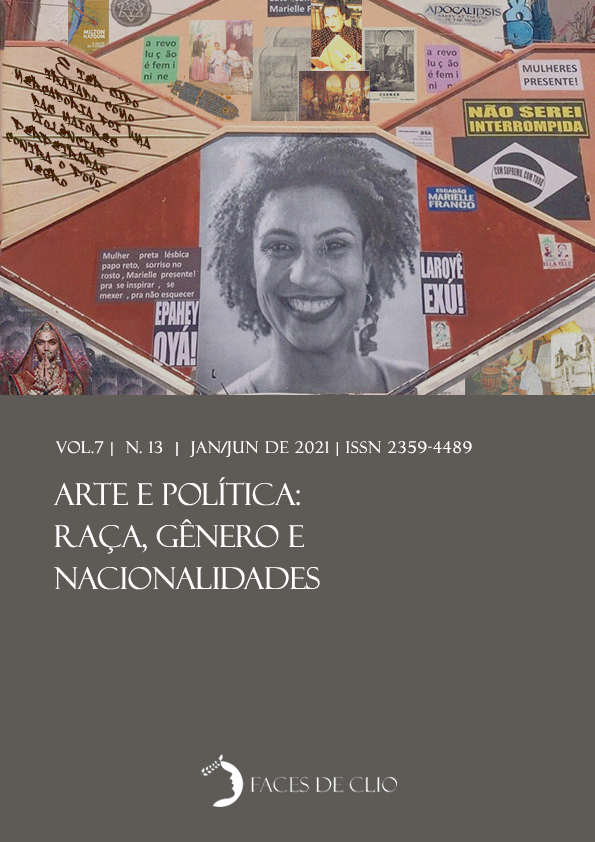Padmaavat (2018)
relations of gender and nationalism from the story of a Rajput queen
DOI:
https://doi.org/10.34019/2359-4489.2021.v7.32144Keywords:
Contemporary India, nationalism, BollywoodAbstract
The present article has the objective of explore the possibilities of analysis about the movie Padmaavat, directed by Sanjay Leela Bhansali, that was launched at 2018 January. The movie tells the story of Queen Padmini, a character that supposedly lived in the 14th century and still popular in the Indian subcontinent today, however the production and exhibition of the feature film creates a series of conflicts between the Indian society due to the way that the story was showed and because it is linked to many communities and their national identity. I intend to contextualize the rising of Padmini’s narratives and develop three principal reading lines and interpretation of the movie, focusing at the process of politization of this narrative and its use for maintaining gender issues, islamophobia and the formation of the Indian nation, mostly in the pass of XIX and XX century.
feature film creates a series of conflicts between the Indian society due to the way that the story was showed and because it is linked to many communities and their national identity. I intend to contextualize the rising of Padmini’s narratives and develop three principal reading lines and interpretation of the movie, focusing at the process of politization of this narrative and its use for maintaining gender issues, islamophobia and the formation of the Indian nation, mostly in the pass of XIX and XX century.
Downloads
References
APPADURAI, A. O medo ao pequeno número. Ensaio sobre a geografia da raiva. trad. Ana Goldberger. Iluminuras: Itaú Cultural, São Paulo, 2009.
CHATTERJEE, P. A Nação em Tempo Heterogêneo In.: Colonialismo, Modernidade e
Política. Salvador: EDUFBA, 2004.
DAS, V. O ato de testemunhar: violência, gênero e subjetividade. Cadernos Pagu (37), julho-dezembro de 2011. P. 11.
JESI, F. A festa e a máquina mitológica. In: Boletim de pesquisa Nelic, Florianópolis, v. 14, n. 22, p. 46, 2014.
KAMINSKI, R. Reflexões sobre a pesquisa histórica, a ficção e as artes. In: FREITAS, A. KAMINSKI, R. (Orgs.). História e arte: encontros disciplinares. São Paulo: Intermeios, 2013, p. 65-93.
KRISHNA, G. The power of pink. Business Satndard, 2010.
MOSTAFAVI, S. M. Globalisation and Hindu Radicalism in India. 2014, p. 30. Disponível em: <https://www.academia.edu/14531877/Globalisation_and_Hindu_Radicalism_in_India>
PANDE, R. Desafios para o feminismo no século XXI: uma perspectiva do sul da Ásia, focalizando especialmente a Índia. In: Entre lugares e mobilidades – desafios feministas. 2014.
RIZVI, W.R. Padmaavat - History is written by his conqueror. Farhatullah, v. 27, 2018.
SAID, E. Orientalismo - O oriente como invenção do ocidente. São Paulo: Companhia de Bolso, 2007.
SREENIVASAN, R. The Many Lives of a Rajput Queen: Heroic Pasts in India, c. 1500-1900. University of Washington Press, 2017.
Downloads
Published
How to Cite
Issue
Section
License
Copyright (c) 2021 Michele Souza de Oliveira

This work is licensed under a Creative Commons Attribution 4.0 International License.


